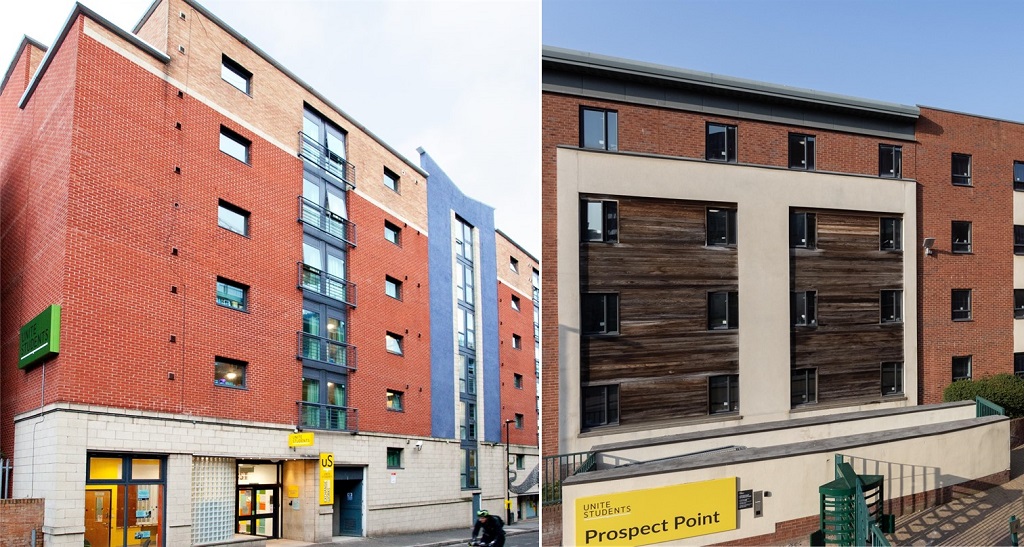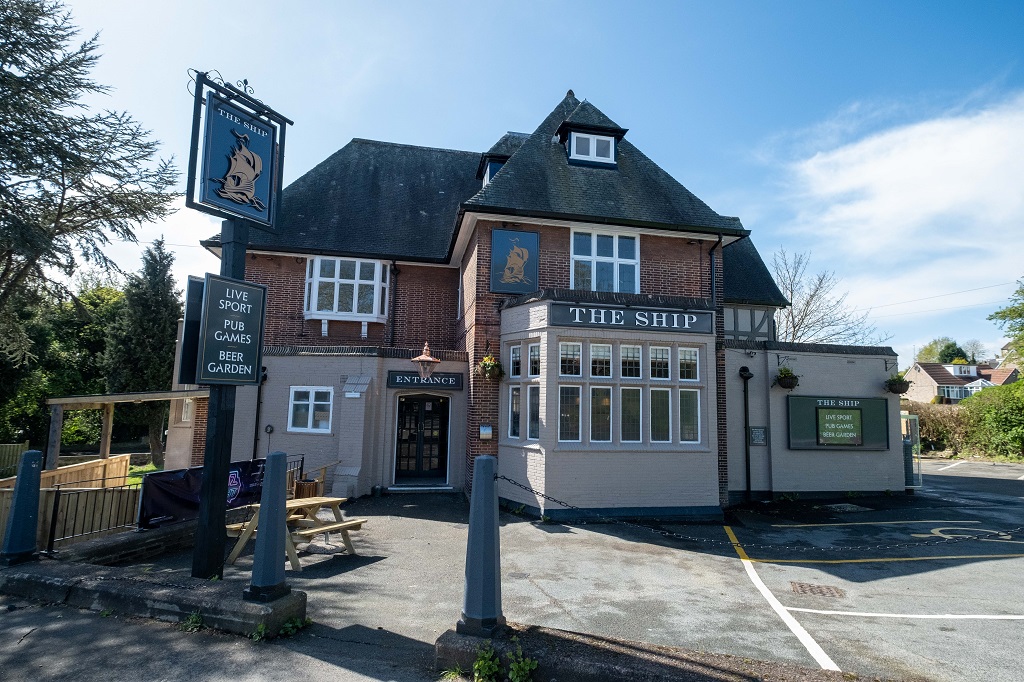The Subplot
The Subplot | Liverpool, HS2, super volcanoes
Welcome to The Subplot, your regular slice of commentary on the business and property market from across the North of England and North Wales.
THIS WEEK
- Red flag or green light? New leadership in Liverpool raises hopes in the property business
- Elevator pitch: your weekly rundown of who and what is going up, and who is heading the other way
LIAM OF LIVERPOOL
The Mersey Gorbachev plots perestroika
Recently-installed Liverpool City Council Leader Cllr Liam Robinson could be a man to do business with. At least, that’s the message he wants you to hear.
Perestroika (restructuring) and glasnost (openness) were the watchwords as Mikhail Gorbachev unfroze the Soviet Union in the late 1980s. An unfreezing may now be underway in Liverpool, where frustration within the property and regeneration sector is hard to ignore.
This week, it manifested as unhappiness over efforts to acquire the stalled New Chinatown site at Great George Street. The latest round of tensions has arisen in Liverpool because of a lack of enthusiasm for apartments and student housing, a lot of small-c conservatism, an obsession with the visitor economy to the exclusion of other prospects, and its openness to new ideas and developers.
Recap
In June 2021 government commissioners largely took control of the city council in the wake of arrests, grim stories about planning and property, and much else. The commissioners were due to stay for three years, but have hinted they may stay longer. The ruling Labour Group, placed in special measures by the party in 2021 after accusations of a toxic culture, is back on its feet.
Big picture
The message from Robinson boils down to this: he gets it, he knows attitudes have to change. But he’s also disciplined and cautious, has to take the party with him, and readers looking for amazing upsets will be disappointed. Reading between the lines, however, reveals a man who knows he has a fight on his hands.
“We can’t just rely on our international tourist reputation,” he says. “We have a very strong visitor economy but it can’t be the only economic growth sector. It’s more like a global advertisement, yes we’re a great place to visit, but also a great place to work and live,” he says, adding, “We’re working with private sector partners to strengthen the offer – I can’t say too much, it’s in development – but the private sector has been here before [co-operating with the council] and we know what we have to do is deliver.”
Bad feelings
In particular, Robinson knows that planning is a problem. But it’s tricky: he’s not a member of the planning committee – which has its own quasi-judicial powers, so can’t easily be told what to do – and to change the mood music he needs to bring the Labour Group with him. No small ask. But when challenged to say that he appreciates the problem some private sector developers have with slowness and uncertainty in the council’s planning function, he responds: “I hear it loud and clear, and yes there are issues around planning but we’re in a better place now. We’re dealing with more applications, we’ve a good team and we’re recruiting more. I’m keen to reach out… watch this space, but there’s still work to do.”
Developing a spine
Liverpool did a bold and much-praised thing in backing the 160,000 sq ft Spine office building at Paddington Village. It opened in 2021 and is slowly filling up. Under Robinson’s leadership, efforts are being made to ginger up prospects. But the location isn’t for everyone as Subplot reported in August. Building in the city centre, which has a shortage of nice new office space and might appeal to a wider audience of tenants, hasn’t got far. Since permission for Pall Mall was granted in 2019, plans for 400,000 sq ft are still just plans. Does Robinson plan to kick this one forward?
Erm, maybe
The answer sounds good. “We can’t be a one-trick pony – it can’t just be The Spine,” he says. How about a council-backed wrap-around lease to get Pall Mall going (Salford tried this, successfully, at New Bailey and Embankment)? “I won’t rule anything out, I’m happy to look at imaginative solutions. I’m confident in the team we’ve now brought into the city council and we’ll look at ideas, always happy to look at good ideas. Genuinely, the door is open to business,” he says.
Zones of uncertainty
The newly-minted Liverpool Investment Zone provides an opportunity to capitalise on one of Liverpool’s existing white-collar strengths: life sciences. Robinson calls the £320m zone “next level” after the Knowledge Quarter. It extends through Speke’s pharmaceutical cluster to Daresbury and beyond. Robinson hymns the partnership prospects.
“The Spine grew out of strong public-private collaborations, the Knowledge Quarter is doing that too. We have an industry here with national and international significance… We’re looking at how we move onto [developing] other buildings, and masterplanning the waterfront,” he says.
A 120,000 sq ft laboratory development at Paddington Village is likely to be the first fruit. However, the zone is going to be a slow burn, Robinson says. “This will show its benefits over a number of years, maybe 10 years is a good time to take the temperature on this one.” A bit slow for some tastes, but results will be the key.
Red flag or green light?
Liverpool hasn’t had a leader like Liam Robinson for a very long time. He’s not a Liverpool insider with all the loyalties and connections that brings – he’s Macclesfield via Manchester. He’s appreciably younger than his predecessors. He wouldn’t look or sound out of place in your board room and exudes the air of a serious person doing serious business. His suit fits him.
Like Gorbachev he is a product of the old regime: councillor since 2008, and until this year the council cabinet member for finance. So this won’t be a revolution. The red flag will still fly, the old shibboleths will be respected. Even so, developers privately have their fingers crossed that glasnost has arrived.
- Cllr Liam Robinson will be speaking at Place North West’s Place RESI conference on 19 October. Book your ticket.
 ELEVATOR PITCH
ELEVATOR PITCH
Going up, or going down? This week’s movers
A difficult week to be a Labour frontbencher, possibly also a difficult week to be a non-bank lender to commercial real estate. Doors closing!
 Super volcanoes
Super volcanoes
This week brought the news that Italy’s truly enormous Campi Flegrei supervolcano – the one that wiped out the Neanderthals – is stirring again. This is not comforting information. Judging by the tremours another more modest volcano may be about to rumble in the £43bn-plus UK commercial property finance world.
Non-bank lending – hedge funds, private equity, family offices, and so on – has been growing as a proportion of commercial property debt, up from about £11bn of total debt in 2015, to about £32bn today according to Bayes Business School data. That’s up from about 7% of the UK loan book to about 18%.
Non-bank lenders do not have to follow the same post-Great Financial Crisis rules as banks – so they can take on more risk. This anomaly has been the subject of some discussion and concern for a while, and now the Financial Stability Board has decided to review shadow banking in case non-bank lenders are digging themselves (and everyone else) into trouble. In some locations and sectors, a crunch on non-bank lending would mean a serious brake on development, or worse.
At the same time UK banks, who account for about £64bn of UK commercial real estate debt, are also raising financial stability worries after posting strangely low loan loss charges on their property debt. Last week, the Bank of England warned that their calculations didn’t seem to be capturing economic reality. Anyone who follows the US regional banks’ exposure to commercial property debt will appreciate ugly echoes – see this week’s latest MSCI update for a sobering view.
 Labour HS2 and rail pledges
Labour HS2 and rail pledges
Promising the long-awaited Leeds Tram, a new Bradford rail station, improved transpennine rail, and a bucket load of road schemes is clever politics, whatever the economics, or likelihood of delivery. Anyone campaigning for HS2 now has to explain why the North (and lots of individual constituencies that got nothing much directly from HS2) can’t or shouldn’t have these goodies.
So will the plans survive a change of government to the Labour Party who – if opinion polls are any guide – will be in charge by about this time next year? Liverpool City Council Leader and Liverpool City Region transport portfolio holder Cllr Liam Robinson seemed a good person to ask.
Speaking before yesterday’s announcement by Prime Minister Rishi Sunak, Robinson told Subplot: “Liverpool needs both HS2 and Northern Powerhouse Rail. We want to see a strong network for the North….this is not just about faster journey times, it’s about capacity, particularly for freight.” He took comfort from pledges by Labour shadow minister Nick Thomas-Symonds to build the whole of HS2, including the Manchester and axed Leeds legs.
But Thomas-Symonds is not shadow transport minister (he shadows the cabinet office). Two other frontbenchers have declined to repeat the pledge and the transport team led by Sheffield MP Louise Haigh has been circumspect. Haigh’s tweets in response to yesterday’s Sunak speech were full of indignation but conspicuously failed to pledge to reverse his decision.
Subplot approached Haigh’s team for clarification. Subplot also contacted Robinson asking if he’d be prepared to talk to government about its Network North offer. Replies were awaited as Subplot shipped, but we’ll report back.
In the meantime, a quick unscientific canvas of political big brains suggests Labour will argue loudly that Sunak’s plan is all jam tomorrow, and his promises are not to be trusted, but with less fanfare will probably swallow the £36bn Network North proposals in whole or in part. In which case HS2 really is caput.
Get in touch with David Thame: [email protected]





